Spondyloarthritis (SpA) is a large family of chronic inflammatory diseases characterized by inflammation of the axial skeleton, a typically asymmetric peripheral arthritis of the lower limbs, enthesitis, typical extra-articular manifestations, and shared genetic background. The prevalence in the general population is up to 2% for the entire group. SpA, particularly ankylosing spondylitis, has been associated with a diagnostic delay of up to 10 years. Important efforts toward shortening this delay have been made, including the development of new classification criteria.
Diffuse idiopathic skeletal hyperostosis (DISH) is a form of arthritis that involves the tendons and ligaments around the spine. Also known as Forestier’s disease, this condition occurs when these tendons and ligaments become hardened, a process known as calcification. Once the tendons and ligaments harden, parts of these tissues can turn into bone. This usually occurs where the tissue connects with the bone. As a result, bone spurs develop, which is an outgrowth of bone that develop along the edges of a bone. DISH (Diffuse idiopathic skeletal hyperostosis ) commonly affects the upper part of the back and neck, known as the thoracic and cervical spine. However, DISH (Diffuse idiopathic skeletal hyperostosis) can also affect the shoulders, elbows, hands, knees, hips, heels, and/or ankles.
Osteoarthritis (OA) is the most common chronic (long-lasting) joint condition. The first sign of osteoarthritis of the spine is usually pain and stiffness in your back or neck. The condition can be difficult to diagnose, as it can be hard to tell which symptoms are linked to osteoarthritis. It can even be hard to spot back and neck problems on x-rays of the spine, as changes caused by osteoarthritis don’t always cause pain.
FAD LIVE!
SPONDYLOARTHRITIS, DISH AND OSTEOARTHRITIS: SIMILARITIES AND DIFFERENCES
FAD
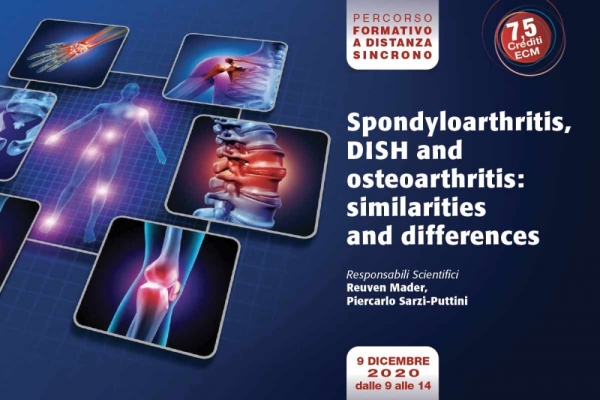
- Inizio iscrizioni: 27-10-2020
- Fine iscrizione: 09-12-2020
- Posti liberi: 328
- Accreditato il: 29-09-2020
- Crediti ECM: 7.5
- Ore formative: 5h
- Codice Evento: 307006
- N. Edizione: 1
Dettaglio
AVVISO IMPORTANTE
Fad LIVE! - l'evento andrà in onda il 12 dicembre 2020 dalle ore 9.00.
Consultare il programma sottostante per maggiori dettagli.
Si prega di iscriversi al Corso almeno 2-3 giorni prima.
È OBBLIGATORIA LA PARTECIPAZIONE ALLA DIRETTA PER ALMENO IL 90% DELLA DURATA AI FINI DEL CONSEGUIMENTO DEI CREDITI ECM E DELL'ATTESTATO DI PARTECIPAZIONE
Presentazione
Programma
Webinar 09 dicembre 2020 dalle ore 09.00
Session 1
Moderatori: Reuven Mader, Piercarlo Sarzi-Puttini
09.00 Introduction Reuven Mader, Piercarlo Sarzi-Puttini
09.30 DISH (Diffuse idiopathic skeletal hyperostosis): axial clinical aspects-pathogenetic updates Reuven Mader
09.50 Spondiloarthritis: axial clinical aspects with emphasis on early diagnosis Xenofon Baraliakos
10.10 Osteoarthritis of the spine: co-existence with DISH (Diffuse idiopathic skeletal hyperostosis), implications Verlaan
10.30 Imaging evaluation of DISH (Diffuse idiopathic skeletal hyperostosis ) (advantages and disadvantages of Rx Radiography, CT Computed Tomography , MRI Magnetic Resonance Imaging , radionuclide) Iris Eshed
10.50 Muscoloskeletal ecography:it may be useful in inflammatory SpA (Spondyloarthritis) or in OA(Osteoarthritis)? Georges Filippou
11.10 Discussion of the topics covered
Session 2
Moderatori: Amir Bieber, Nicola Pappone, David Kiefer
11.30 Rehabilitation in DISH (Diffuse idiopathic skeletal hyperostosis ) and SpA (Spondyloarthritis) Pasquale Ambrosino
11.50 Treatment of Spondyloarthritis -Late and early biologic and small molecules available Piercarlo Sarzi-Puttini
12.10 Genetics of DISH (Diffuse idiopathic skeletal hyperostosis ) -what do we know or don't know Jacome' Armas Bruges
12.30 Genetics of spondyloarthritis-an update Muhammad Asim Khan
12.50 Complications of axial DISH (Diffuse idiopathic skeletal hyperostosis) Jonneke Kuperus
13.10 Metabolic syndrome and DISH (Diffuse idiopathic skeletal hyperostosis) Fabiola Atzeni
13.30 Discussion of the topics covered
14.00 Conclusion
Al termine del Webinar il discente avrà 72 ore di tempo per compilare i questionari di valutazione e di gradimento, entrambi indispensabili per l'ottenimento dei crediti ECM.
Informazioni
Obiettivo formativo
3 - Documentazione clinica. Percorsi clinico-assistenziali diagnostici e riabilitativi, profili di assistenza - profili di cura
Mezzi tecnologici necessari
Per la fruizione e l'accesso al corso FAD saranno necessari un computer (Windows o Mac) dotato di connettività internet, di un browser di navigazione standard (Internet Explorer, Firefox, Chrome, Opera, Safari) e di un programma per l'apertura e la lettura dei file PDF (per esempio: Adobe Acrobat Reader).
Per la fruizione del Webinar in diretta sarà necessario installare il programma gratuito GoToWebinar, Potete effettuare il download del programma, e le relative istruzioni di installazione, a questa pagina.
Procedure di valutazione
Questionario (obbligatoriamente a risposta multipla e doppia randomizzazione)
Attenzione: la nuova normativa ministeriale in vigore dal 01/07/2019 prevede che:
- numero massimo di tentativi a diposizione: 5
- soglia di superamento: 75% delle risposte corrette
Responsabili
Responsabile scientifico
-
 Reuven MaderResponsabile del Dipartimento Patologie Reumatiche del Ha'Emek Medical Centre ad Afula, Israele
Reuven MaderResponsabile del Dipartimento Patologie Reumatiche del Ha'Emek Medical Centre ad Afula, Israele -
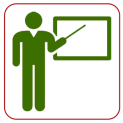 Piercarlo Sarzi PuttiniPROFESSORE ORD E DIRETTORE UOC REUMATOLOGIA UNIV.DI MILANO E IRCCS GALEAZZI SANT'AMBROGIO MILANO
Piercarlo Sarzi PuttiniPROFESSORE ORD E DIRETTORE UOC REUMATOLOGIA UNIV.DI MILANO E IRCCS GALEAZZI SANT'AMBROGIO MILANO
Docente
-
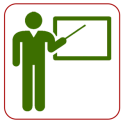 Jacomè Armas BrugesDirector of the Genetics Arthritis Research Group (GARG) at the Institute Molecular and Cell Biology (IBMC), University of Porto
Jacomè Armas BrugesDirector of the Genetics Arthritis Research Group (GARG) at the Institute Molecular and Cell Biology (IBMC), University of Porto -
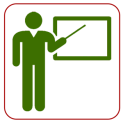 Muhammad Asim KhanProfessor Emeritus of Medicine, Case Western Reserve University (CWRU) School of Medicine, Cleveland, Ohio, USA
Muhammad Asim KhanProfessor Emeritus of Medicine, Case Western Reserve University (CWRU) School of Medicine, Cleveland, Ohio, USA -
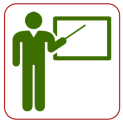 Fabiola AtzeniProfessoressa di I fascia c/o Univ. degli Studi di Messina e Responsabile Unità di Reumatologia
Fabiola AtzeniProfessoressa di I fascia c/o Univ. degli Studi di Messina e Responsabile Unità di Reumatologia -
 Xenofon BaraliakosCAPO DIP. CENTRO REUMATOLOGICO RUHRGEBIET HERNE, RUHR-UNIVERSITY BOCHUM-GERMANY E PROF. E MEDICO MEDICINA INTERNA E REUMATOLOGIA
Xenofon BaraliakosCAPO DIP. CENTRO REUMATOLOGICO RUHRGEBIET HERNE, RUHR-UNIVERSITY BOCHUM-GERMANY E PROF. E MEDICO MEDICINA INTERNA E REUMATOLOGIA -
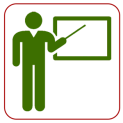 Amir BieberSenior Doctor in Rheumatology, Meuhedet Heath Care Services.
Amir BieberSenior Doctor in Rheumatology, Meuhedet Heath Care Services. -
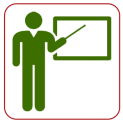 Iris EshedProfessor of Radiology– Tel-Aviv university
Iris EshedProfessor of Radiology– Tel-Aviv university -
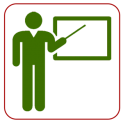 Georgios FilippouUnità Operativa di Reumatologia all’IRCCS Ospedale Galeazzi - Sant'Ambrogio, Milano
Georgios FilippouUnità Operativa di Reumatologia all’IRCCS Ospedale Galeazzi - Sant'Ambrogio, Milano -
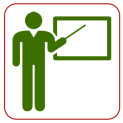 David KieferSpecialista in Reumatologia presso RheumaZentrum Ruhrgebiet - Herne - Germany
David KieferSpecialista in Reumatologia presso RheumaZentrum Ruhrgebiet - Herne - Germany -
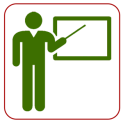 Jonneke KuperusOrthopaedic Surgery Resident - University Medical Center Utrecht | UMC Utrecht · Department of Orthopedics
Jonneke KuperusOrthopaedic Surgery Resident - University Medical Center Utrecht | UMC Utrecht · Department of Orthopedics -
 Reuven MaderResponsabile del Dipartimento Patologie Reumatiche del Ha'Emek Medical Centre ad Afula, Israele
Reuven MaderResponsabile del Dipartimento Patologie Reumatiche del Ha'Emek Medical Centre ad Afula, Israele -
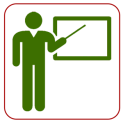 Nicola PapponeDirigente medico di II° livello Fondazione Salvatore Maugeri. Pavia
Nicola PapponeDirigente medico di II° livello Fondazione Salvatore Maugeri. Pavia -
 Piercarlo Sarzi PuttiniPROFESSORE ORD E DIRETTORE UOC REUMATOLOGIA UNIV.DI MILANO E IRCCS GALEAZZI SANT'AMBROGIO MILANO
Piercarlo Sarzi PuttiniPROFESSORE ORD E DIRETTORE UOC REUMATOLOGIA UNIV.DI MILANO E IRCCS GALEAZZI SANT'AMBROGIO MILANO -
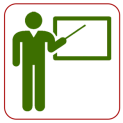 Jorrit Jan VerlaanDirector of residency program (‘Opleider’), University Medical Center Utrecht
Jorrit Jan VerlaanDirector of residency program (‘Opleider’), University Medical Center Utrecht
Elenco delle professioni e discipline a cui l'evento è rivolto
Medico chirurgo
-
Allergologia ed immunologia clinica
-
Anestesia e rianimazione
-
Dermatologia e venereologia
-
Endocrinologia
-
Geriatria
-
Ginecologia e ostetricia
-
Malattie metaboliche e diabetologia
-
Medicina dello sport
-
Medicina fisica e riabilitazione
-
Medicina generale (Medici di famiglia)
-
Medicina interna
-
Medicina nucleare
-
Nefrologia
-
Ortopedia e traumatologia
-
Radiodiagnostica
-
Reumatologia






